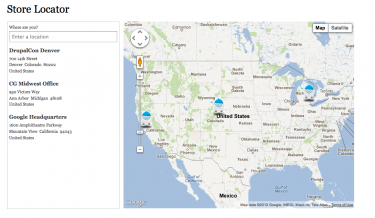Using OpenID Connect for Single Sign-On with Drupal
At Commerce Guys we provide a varied range of services, including our cloud PaaS Platform.sh, this Drupal Commerce community website, support, and the Commerce Marketplace.
Our users may need to log in to any of these services, and sometimes several at the same time. So we needed to have a shared authentication system, a way of synchronizing user accounts, and single sign-on (SSO) functionality.
After a lot of research on the existing methods, such as CAS, we found that there was no generic open-source solution which would cover all of our current needs and would also allow us to grow and scale in the future when adding new features or applications.
We decided to implement the OAuth 2.0 and OpenID Connect protocols, which were designed to be flexible, yet simple and standardized - exactly what we wanted.





